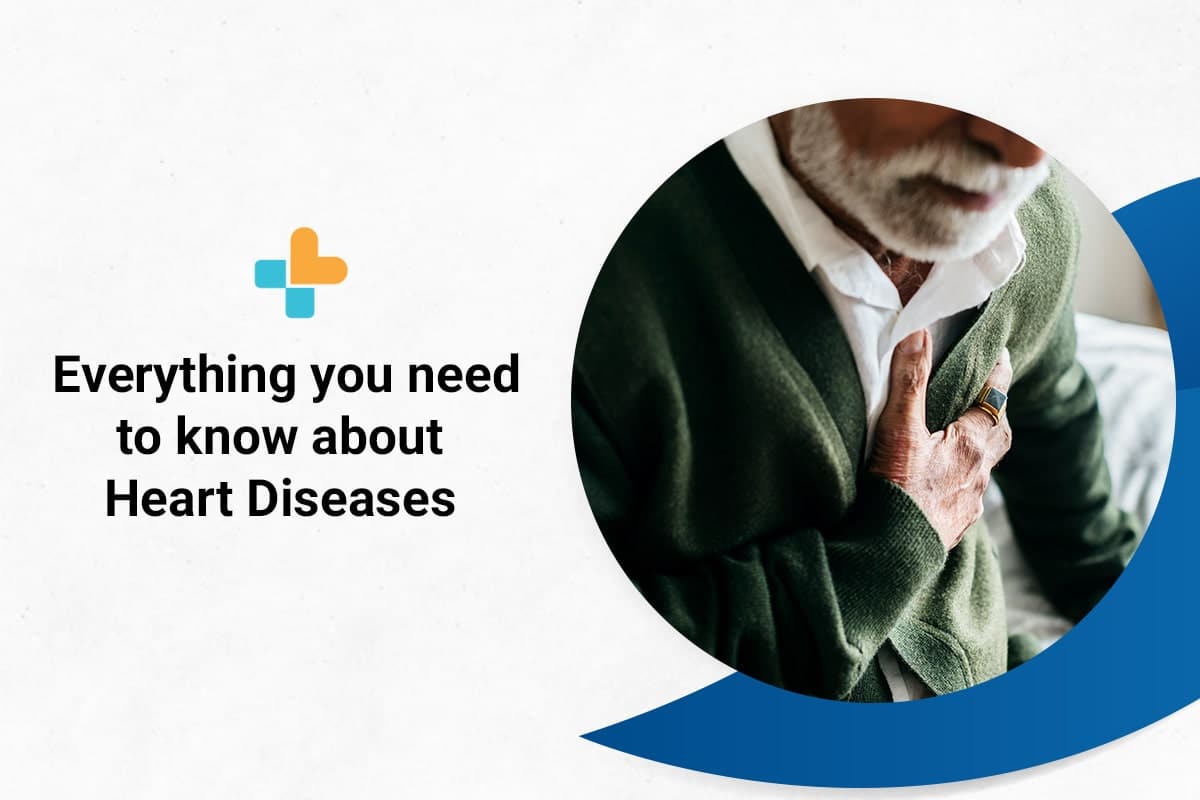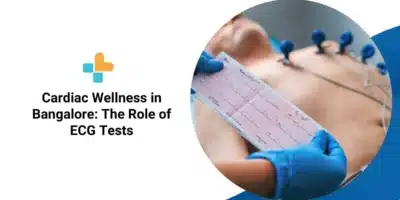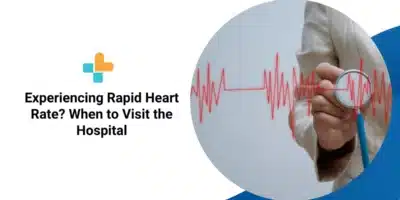According to the World Health Organisation, India has roughly 35,40,000 fatalities attributable to cardiovascular disease (CVD), with the younger generation bearing the brunt of the burden. Sudden Cardiac Arrest (SCA) is becoming more common among teenagers as a result of sedentary lifestyles, diabetes, increased alcohol intake, smoking, and hypertension.
There is a lot that can be done to avoid becoming a part of this statistic and to change it.
Simply being aware of some of the common heart diseases and knowing what causes them can help you recognize warning signs before tragedy befalls. Knowing the factors (both modifiable and nonmodifiable) will also help you stay alert and make the necessary lifestyle changes to ensure a safer future.
But what exactly is cardiovascular disease?
The term cardiovascular disease (also known as heart disease) encompasses a wide range of heart disorders, each with its own set of symptoms and treatment options. For some people, lifestyle adjustments and medication can make a significant difference in their health. Others may require surgery to restore their heart’s functionality.
So without further ado, let’s find out more about the common heart diseases in India ? From causes to treatments.
The 4 types of heart diseases
- Coronary Artery Disease (CAD)
The most prevalent heart condition is coronary artery disease (CAD). Your coronary arteries — the vessels that supply blood to your heart — are damaged or diseased as a result of various factors. This can cause a reduction in blood flow to your heart muscle, preventing it from receiving the oxygen it requires.
Causes of CAD:
- Atherosclerosis (hardening of arteries)
- Smoking
- Age
- Stress
- Diabetes
- Obesity
- High blood pressure
- Genetics
Treatments for CAD:
There is no cure for coronary artery disease, but there are treatments that can help you manage it. It usually entails making positive lifestyle changes including quitting smoking, eating a healthy diet, and exercising on a regular basis. Medications are also prescribed by doctors to slow the course of CAD.
- Arrhythmia:
An abnormal heartbeat is referred to as an arrhythmia. A person’s heart may beat too quickly, too slowly, too early, or with an irregular rhythm if they have this disorder.
Causes include:
- Alcohol and substance abuse
- Stress
- Diabetes
- High blood pressure
- Hyperthyroidism (overactive thyroid gland)
- Scarring of the heart, often due to a heart attack
- Medications
- Structural changes in the heart
Treatments for arrhythmia:
Treatment for arrhythmia is only required if the condition is putting you in danger of more serious arrhythmia or a complication, or if the symptoms are severe.
The treatments, if required, include:
- Solving the underlying problem that causes the irregular heartbeat
- Medications
- Pacemakers
- Therapies such as vagal manoeuvres, cardioversion, catheter procedures or
- Heart surgery
- Heart valve disease
There are four chambers in your heart. And these four chambers are regulated by four valves. An irregularity in these valves could cause blockage of blood flow or a leak. This is known as heart valve disease.

Causes include:
- Coronary artery disease
- Heart attack
- Heart valve infection
- Changes in the heart valve structure due to ageing
- Rheumatic fever
- Congenital heart disease
Treatments for heart valve disease:
In certain circumstances, your doctor may simply want to keep an eye on the heart valve condition for a while. If it appears to be causing severe symptoms, medicine or surgery to repair or replace the valve is recommended. The type of heart valve impairment and its severity determines the course of treatment.
- Heart failure
When the heart muscle doesn’t pump blood as well as it should, it causes heart failure, also known as congestive heart failure. It is critical to understand that heart failure does not imply that the heart has stopped beating. Heart attacks occur when the heart itself lacks blood flow, whereas heart failure occurs when the heart is unable to adequately pump blood around the body.
Causes include:
- Diabetes
- Obesity
- Sleep apnea
- Coronary heart disease
- Congenital heart disease
- Abnormal heart valves
- Hypertension
Treatments for heart failure:
Heart failure is a chronic condition that requires ongoing care. Heart failure symptoms and indicators can improve with medication, and the heart can sometimes become stronger. Doctors can also treat the underlying cause of heart failure to improve symptoms. However, for the majority of patients, heart failure treatment is a combination of the right medications and, in some cases, the use of devices that help the heart pulse and contract effectively.
Some frequently asked questions:
What are the symptoms of heart disease?
The symptoms vary depending on the condition you are experiencing. It is recommended that you see a doctor immediately if you observe the following conditions frequently –
- Chest pain
- Shortness of breath
- Fainting
Early detection of heart disease makes it easier to treat, so talk to your doctor about any worries you have about your heart health and all the symptoms you find concerning.
How is heart disease diagnosed?
A few basic tests might give your doctor the first indications of whether or not you have a heart disease. A physical examination will be performed by your doctor, who will also inquire about your personal and family medical history. The further tests you’ll need to diagnose your heart disease are decided by your doctor based on the primary findings. In addition to blood tests and a chest X-ray, tests to identify heart disease can include:
- Electrocardiograms (ECGs)
- Echocardiogram
- Stress test
- Cardiac catheterization
- CT scan
- MRI
If you suspect you have heart disease based on new signs or symptoms you’re experiencing, make an appointment to discuss your concerns with the best cardiologists in Bangalore atAyu Health. You can either call us at +91 – 6366 100 800 to schedule a consultation or book an appointment online!
Our Hospital Locations
Cardiology Surgery Hospitals in Chandigarh | Cardiology Surgery Hospitals in Bangalore | Cardiology Surgery Hospitals in Jaipur | Cardiology Surgery Hospitals in NCR | Cardiology Surgery Hospitals in Hyderabad
Our Doctors
Cardiology Surgery Doctors in Chandigarh | Cardiology Surgery Doctors in Bangalore | Cardiology Surgery Doctors in Jaipur | Cardiology Surgery Doctors in NCR | Cardiology Surgery Doctors in Hyderabad
About the Author

Dr. Darshan Krishnappa
Dr. Darshan Krishnappa is a renowned cardiologist currently practicing at Ayu Health, Bangalore.
Dr. Darshan Krishnappa is a Cardiologist with 7 years of experience. He completed his MD in Internal Medicine from the prestigious All India Institute of Medical Sciences, New Delhi. He is specialized in cardiology.




